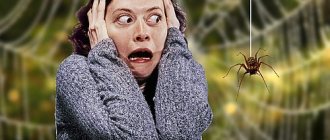Taphophobia is the fear of funerals, including your own, as well as the fear of being buried alive. Taphophobe also experiences fear of funeral paraphernalia and any mention of burial ritual. This is a phobia that is a frequent consequence or companion of thanatophobia - fear of death. Both of them are closely interconnected with each other.
What is taphophobia
Taphophobia is an irrational, panicky fear of funerals and related paraphernalia (wreaths, cemeteries, coffins, graves). A taphophobe will never go to the funeral of even a loved one. He avoids gloomy films and news reports, and avoids funeral parlors and shops where you can see something reminiscent of a funeral.
Psychologists distinguish several types of taphophobia:
- fear of being buried alive;
- fear of death;
- fear of hearse;
- fear of torment and pain;
- fear of funerals, cemeteries, coffins, dead people;
- fear of falling into a lethargic sleep and then waking up in a coffin.
The fear of being buried alive became widespread in the 18th-19th centuries. And this was due to the increasing number of cases of medical errors, when a living person was declared dead. Since then, medicine has come a lot further, so it is very strange that the fear of being buried alive is still present in our society. Perhaps it's something else, and not just a lack of trust in doctors.
Interesting! Taphophobia is similar to necrophobia - fear of the dead. Sometimes these terms are identified. Taphophobia is also associated with claustrophobia.
Symptoms
Psychologists include the following symptoms of taphophobia:
- partial or complete sleep disturbance (insomnia, nightmares, too light sleep);
- panic fear at the sight of funeral paraphernalia or while visiting a cemetery;
- darkening of the eyes, dizziness, loss of consciousness;
- tremor of the limbs;
- hallucinations.
Each person is different and symptoms may vary. Atypical manifestations include:
- loss of appetite;
- depressive state.
Panic fear of the cemetery
Reasons for fear of funerals
Fear of being buried alive - what is this phobia? More often it is associated with psychological trauma or fear after watching the film of the same name. If it is not the person’s impressionability that is to blame, but trauma, then we can talk about the experience of violence, torture, and ill-treatment.
Reasons for fear of other people's funerals:
- Childhood trauma. Perhaps the child was frightened by the funeral procession, tears and screams of friends and relatives of the deceased. It is difficult for children to understand all this, so it is better not to take them to the funeral.
- Trauma experienced in childhood or adulthood associated with the death of a loved one . In this case, funeral paraphernalia triggers unpleasant memories.
- Fear of old age and death. Associated with this is the fear of death itself.
- Fear of losing control of the situation. Some people, due to their personality traits, need to control everything at all times. The very thought that they will find themselves in conditions of helplessness causes a panic attack.
- Poor medical training, suggestibility. Some people are afraid that they will be buried alive by mistake, for example, by confusing clinical death or coma with real death.
- Fear of becoming a victim of blackmail, someone's cruel joke. Or the fear of being in the wrong place at the wrong time, of becoming a victim of a maniac. This reason is relevant for suspicious people with a pessimistic vision of the world and for those who are afraid that specific people may take revenge on them in this way.
In adulthood, the fear of being buried alive can develop due to stress and exhaustion, as well as violence. For example, if a person was tortured, beaten, or was forced to dig his own grave, threatened, thrown into a hole, etc.
Interesting! According to psychoanalytic theory, the fear of funerals and the fear of being buried alive are associated with psychotrauma received during fetal development. Psychologists are confident that the child understands and feels if he was unwanted by his parents, if they wanted to kill him. In the future, this may take the form of a phobia.
Help yourself
In the treatment of taphephobia, self-education and independent work to strengthen mental health play an important role. High efficiency is achieved if the patient actively performs exercises and organizes simple activities:
- reads books and articles with life-affirming information every day;
- listens to calm and melodic music;
- watches informative films;
- playing sports;
- spends a lot of time outdoors;
- organizes his vacation as an active activity;
- looks at your fears objectively and analyzes them;
- studies the literature on phobic disorder;
- reevaluates and comprehends his life;
- reconsiders priorities in daily activities, highlighting creative activities;
- tries to minimize situations in which his fear manifests itself;
- excludes staying in closed, dark, stuffy rooms;
- avoids loneliness;
- talks with people who have similar problems;
- provides help and support to those who suffer from taphephobia.
When contacting a doctor, it is important for a patient to remember that only timely and comprehensive treatment will help quickly get rid of the problem of behavior disorder.
0
At-risk groups
Suggestible, suspicious people with a developed imagination are at risk. Also at risk are all those who have experienced trauma associated with a funeral or violence. Psychologists note that taphophobia is more common in men than in women.
Interesting! The fear of being buried alive haunted Edgar Allan Poe and Nikolai Vasilyevich Gogol. Strange, isn't it? Considering that both writers often turned to mysticism in their works, especially Poe. He even wrote a book with the same title – “Buried Alive.”
A little history
The fear of accidental burial was first noted in ancient times, as soon as people began to bury their loved ones. Even then, everything was done so that people could eradicate this fear. In the 18th century, a mandatory three-day delay for funerals was introduced. The presence of death was verified by several specialists and using different methods. However, taphephobia became widespread in the early 19th century. Famous people suffered from it: N. Gogol, M. Tsvetaeva, A. Nobel, W. Collins.
At the beginning of the 20th century, safety coffins began to be produced , which were equipped with means of communication with the outside world. With their help, the buried person could get out on his own.
Signs and Symptoms of Funeral Fear
As with other phobias, fear of funerals has three leading symptoms:
- anxiety that grows upon contact with an object of fear (coffins, wreaths, graves, etc.) or when talking about it, viewing pictures and videos;
- avoidance reaction (a person tries to change the topic, run away, hide);
- somatic reactions in response to mental stress.
In addition, most taphophobes suffer from nightmares and other sleep problems (frequent awakening and difficulty falling asleep, insomnia). Dreams are distinguished by the realistic sensations. After them, a person wakes up in a cold sweat, his heart beats very quickly, his breathing becomes labored.
This is largely due not so much to psychological stress as to the physical executions that the taphophobe inflicts on himself. Many of those who are afraid of being buried alive are afraid to take a horizontal position and fall asleep. Therefore, they either deliberately deprive themselves of sleep or try to take a nap in a standing, sitting or other uncomfortable position. Many taphophobes are keen on studying medical literature and the science of dreams.
A taphophobe is afraid to fall asleep because it seems to him that he may not wake up. And even a medical certificate of health does not help to relieve obsessive thoughts. In advanced stages, before going to bed, a person connects devices that measure blood pressure and pulse. While awake, the taphophobe is also overly concerned about his health. The inevitable somatic reactions frighten him even more.
Somatic symptoms of taphophobia:
- nausea,
- vomit,
- headache,
- dizziness,
- dry mouth,
- appetite disorders,
- chills,
- sweating,
- tremor,
- tachycardia,
- arrhythmia,
- pressure surges,
- pre-fainting state.
Taphophobes try to avoid loneliness, especially in bed. If there is another person nearby, then the taphophobe calms down a little - if they help him with anything, they will push him away. However, this does not help to calm down completely. Then the taphophobe comes up with protective rituals and rituals. For example, he keeps an audio diary or leaves verbal instructions about what needs to be done before burying him (how many days to wait, what medical examinations to conduct, how often to check the body if the person is declared dead), writes a suicide note.
Some taphophobes even bother making a special coffin, for example, one that can be used to send some kind of signal to the top; they order a coffin with a video camera inside or with ventilation.
Note! The taphophobe is very afraid of losing consciousness, but the more he is afraid of this, the higher the risk that this will happen.
How to overcome the fear of coffins?
In the early stages, you can try to cope with fear on your own. Here are the simplest recommendations:
- Try to distract yourself from dark thoughts. Chat with friends, walk in the park, listen to positive music, play sports, travel. The more reasons you have to rejoice, the better your psychological state will be.
- Find people who have overcome any phobia. Their understanding and support will be extremely important. Share your feelings and concerns with them.
- Read more about the fear of coffins. It has been proven that patients' condition improves when they study information about their diagnosis and analyze what they read.
- To relieve symptoms, you can use mild sedatives, breathing exercises, meditation, massages and baths with aromatic oils.
If all else fails, be sure to contact a professional. Fear of coffins in a bright or calm manner of manifestation prevents a person from leading a full life and being happy. Return to list
How to get rid of taphophobia
Most often, psychoanalysis, hypnosis, cognitive behavioral psychotherapy, and gestalt therapy are used to treat the fear of being buried alive. Sometimes free association and desensitization techniques are used. In especially severe cases, medication is indicated: tranquilizers, antidepressants, antipsychotics. But the main method of treatment is the work of a psychologist. The specialist helps the client work through the trauma and realize the irrationality of fears.
Coimetrophobia
A cemetery is a place that almost all people associate with negativity and evokes negative emotions.
If in the life of an impressionable person there was an unpleasant or frightening incident that occurred among silent graves, then the most favorable conditions for the development of a phobia arise. For example, 20 years ago children and teenagers loved to tickle their nerves with an evening walk between the tombstones. To get more vivid emotions, scary stories were told. And for the sake of fun, it was necessary to scare a peer by jumping out from behind the cross . Unfortunately, such jokes can cause lifelong fear.
Very emotional children may develop a phobia after attending the funeral of a loved one.
What is the danger of being afraid of funerals?
Taphophobia is exhausting, leads to exhaustion and the development of secondary mental disorders. Without treatment, the taphophobe's condition will constantly worsen. Due to problems with sleep, hallucinations arise, fear of loneliness develops, and depressive tendencies arise. Taphophobia prevents a person from living, working, relaxing, loving, and creating. A person becomes a hostage to his fear and gradually loses touch with reality.
Physiological manifestations
Manifestations of phobia are individual, but psychologists have been able to identify several common signs of taphophobia. Let's take a closer look at them.
Sleep disorders
A dark room, horizontal position, loneliness, closed eyes are directly associated with a funeral. Because of this, the quality of sleep suffers.
What sleep problems does a taphophobe experience:
- frequent awakening;
- trouble falling asleep;
- nightmares;
- insomnia;
- inability to completely relax;
- unnatural sleeping positions.
The latter is often a method of dealing with fear. To get rid of associations, patients take unnatural positions: standing, sitting, bending over.
It is important! With taphophobia, the patient dreams that he finds himself in a nailed-up coffin and hears earth pouring onto the lid of the coffin. Waking up after such dreams, a person is in a cold sweat, it is difficult for him to breathe, his blood pressure rises, and his heartbeat quickens.
Physical ailments
We have already looked at the somatic symptoms that occur most often. It remains to add that in addition to them, panic attacks and individual psychosomatic symptoms are observed. Some people feel unwell in one system, others in several systems of the body at once. Some people regard any deterioration in well-being as impending death.
Why does coimetrophobia require treatment?
It would seem that what could be easier than simply not visiting the cemetery? However, in the case of this phobia, everything is much more complicated. A person prone to fear is concerned not only with burials visible to the eye. He is also concerned about those that have long been wiped off the face of the earth. A coimetrophobe is horrified even by the realization that this or that settlement has grown on the site of an old cemetery. A person will not travel along a highway that passes through the site of any burials . For emotional people, entire residential areas and towns become forbidden places. All this seriously limits a person in his daily life, so coimetrophobia must be treated .
How to protect your child from coimetrophobia?
If a parent notices that a child is very emotional and impressionable, then they should not allow him to watch horror films. necessary to limit the viewing of cartoons, since many of them have a mystical plot and can scare the baby.
You should not tell your child scary stories about cemeteries. If it is necessary to attend someone's funeral , children should be left at home. It is this ritual that gives rise to many different fears in people.
Funeral agency in Minsk - "Peace"











